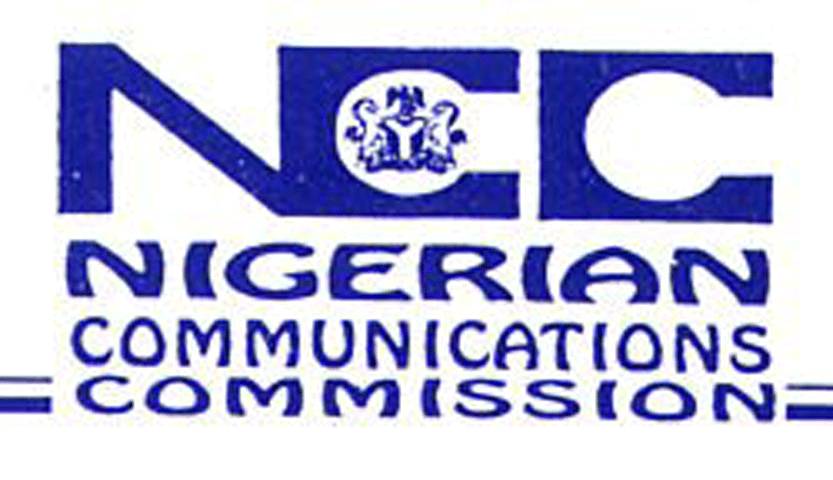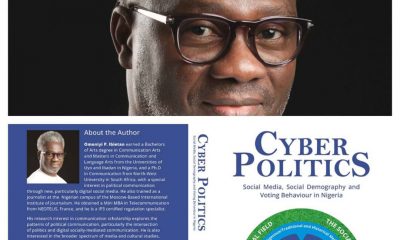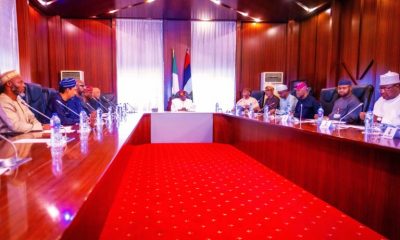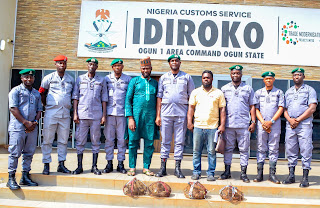NCC
NCC markets Nigeria at world’s telecoms forum in Spain
Published
10 years agoon
By
Olu Emmanuel
EXECUTIVE Vice Chairman (EVC), Nigerian Communications Commission (NCC) Prof. Umar Garba Danbatta has assured International and potential investors that Nigeria remains an haven for Information Communication Technology (ICT) investments with 100% value for Return on Investment.
Danbatta who addressed international investors during a panel discussion in Barcelona, Spain, on the topic “is closing the digital divide in Sub-Saharan Africa myth or reality”, shared light on how safe and profitable to invest in the country.
Nigeria has set out a new agenda for the ICT sector to align with the international regulator (International Telecommunication Union) carefully packaged to cushion all aspects of investments, in the sector, especially “as we move to the next frontier of ICT revolution broadband for internet connectivity,” he said.
Succinct to note that the discussion was a part of the Regional summit for Sub-Saharan Africa at the just concluded, Mobile World congress (MWC) by GSM Association, in Barcelona, Spain which has in attendance array of international communities with good potential to invest in Nigeria and other Africa countries.
Hence, Danbatta further told the panel which was moderated by Nigeria’s Shola Taylor who is also the Secretary General of the Commonwealth Telecommunications Organisation (CTO) that the NCC has put in place the agenda to encourage investors. “Two of the prominent goals are related to deployment of infrastructure for broadband and efficient utilization of Spectrum to benefit all Nigerians in all the regions”
He told the audience which included Secretary General of African Telecommunications Union (ATU), Mr. Abdoukarim Soumaila, Deputy Minister, Telecoms and Postal Services for South Africa, Prof. (Ms) Nlengiwe Mkhize, Meg. Charles-Horn (Africa mobile Networks), Shiletsi Makhofane (Ericsson Sub-saharan Africa), Mr. Mortimer Hope, Director Africa for GSMA, Alan Marcus (World Economic Forum) and Nkateko Nyoka of Vodacom Group among others, that the NCC will keep fate with the National Broadband Plans and in line with this, the country now has seven zones and each zone will have one operator which will deploy broadband services to every part of that zone.
ALSO SEE: You are free to invest in Nigeria — NCC
So far, two infrastructure licences have been issued for Lagos and North Central Zones including the Federal Capital Territory, Abuja and the process for issuing licenses for the other five zones has begun.
Danbatta assured that “the regulatory framework has been put in place to ensure a transparent licensing process because we really want to bridge the digital divide”.
“We want to bridge the digital divide by addressing infrastructure divide and we will be transparent and open about this, Danbatta further submitted.
Earlier in his presentation, Soumaila bemoaned the general poor connectivity of African continent despite huge investments so far by the 46-member Nations of ATU.
Chief Officer, Regulatory Affairs, Vodacom, Nkateko Nyoka said to bridge the digital divide, emphasis has shifted from voice to data and “we need skills to run sustainable businesses”.
He advised regulators to make clear goals in terms of Spectrum allocation”.
For Shiletsi Makhafane, Head, Government and Industry Relations, Ericsson Sub-Saharan Africa, despite the seeming digital divide, there are more mobile phones than TV sets but admitted that “we can reach more people through mobile broadband”
Meg Charles-Horn of Africa Mobile Networks, said adequate connectivity is the only way to bridge the digital divide and “we want to galvanize the opportunity for everyone to have connectivity hence our partnership with the operators across Africa”.
Alan Marcus explained that the digital divide is everyone’s problem and it is not exclusive to Africa. On the South African experience, Prof. Mkhize told the audience that internet provides GDP growth and has helped to connect remote communities that have been cut off by the outlawed apartheid regime of the past.
“Mobile technology has brought the people together and this has transformed the social and economic activities across the country”.
Meanwhile, Nigerian Communication Commission, NCC is to partner the Nigerian Police Force (NPF) to protect and apparently end the incessant sealing of Telecommunications Base Transceivers across the country which is described as unlawful.
The Telecom operators has consistently reported cases of the illegal acts by individuals, local communities and agencies of governments not so approved, but now seeks collaboration of the men of Nigeria Police to nip the action in the bud.
Soliciting police support, the Executive Vice-Chairman of NCC, Prof. Umar Danbatta, during a visit to the Inspector General of Police, Solomon Arase, regretted that in most of cases of such illegal base station closures, the police are usually taken along to portray the actions as legal.
Dambatta, who condemned the act, said it was regrettable that the Nigeria Police would engage in such exercise that violates the criminal justice miscellaneous provision of the laws of the land.
ALSO SEE: More trouble for MTN as House insist on full payment
“Needless also to mention here that the act of sealing telecoms base transceiver stations within the country, obstructs the sending and receiving of communications services and posing serious threats to national security.
“NCC is concerned that in sealing these telecoms TBS sites or obstructing the free flow of telecoms services across the country. These organisations undertake in this activity with the protection of officers of the Nigeria Police.
“Stealing of diesels and generators from base stations have been a contributing factor to disruption of services…We have not received much of the reports about the number of these criminals apprehended or prosecuted.
“We request you to bring to the attention of your officers and men in various formations, to reject invitations for such illegal activities, without competent order emanating from a court of competent jurisdiction.”
Continuing, Dambatta said, “Vandalism of telecommunications infrastructure is a major contributor to quality of service issues in the country, adding that the critical infrastructure bill which is before the National Assembly if passed will help in addressing the wanton destruction of telecommunication infrastructure.
Responding, the IGP condemned the illegal sealing of telecom infrastructure and vowed to nip it in the bud.
Arase, who underscored the importance of technology in modern policing, stated that the police would continue to show its support for protection of critical national infrastructure and deployment of modern technology.
”Since I came on board I have been trying to migrate from analogue to digital technology knowing that that is the best way that the police force can go.
“Some of the issues that you have raised here have been dwelt with, like when I met with the telecommunication operators here last week where they raised the issue of closure of various sites. I called all Commissioners of Police across the country that they must ensure that the illegal closure of sites must be stopped immediately.”
He further called for inclusion of CCTVs in all public buildings, supermarkets and estate before approval plans.
You may like


Ibietan’s book on cyber politics for public presentation 25 July


Tinubu holds meeting with MTN Group Chairman, NCC Vice Chairman


NCC debunks reports on 5G network operation in Lagos


NCC speaks on fibre optic cable laying in Lagos, others


NCC dismisses reports linking 5G network to Coronavirus


NCC fines Airtel, 3 others N2.9bn over infractions
Trending

 News1 week ago
News1 week agoWithout Wike, I Would Not Have Been Governor…Fubara

 Agribusiness1 week ago
Agribusiness1 week agoNigeria Customs Intercepts Four Live Pangolins in Ogun State Anti-Trafficking Operation

 Football5 days ago
Football5 days agoNFF dismisses claims of DR Congo’s World Cup qualifying disqualification

 Football1 week ago
Football1 week agoKane Brace Helps Bayern Widen Bundesliga Lead to Six Points

 Football1 week ago
Football1 week agoGuehi Scores as Man City Advance, Burnley Stunned by Mansfield in FA Cup Fourth Round

 Entertainment4 days ago
Entertainment4 days agoSinger Simi sparks debate after calling for death penalty for rapists

 Football6 days ago
Football6 days agoCAF set for quarter-final draws in Cairo as road to continental finals takes shape

 Football6 days ago
Football6 days agoPardew praises Arteta’s four-competition charge, backs Liverpool for Champions League triumph

